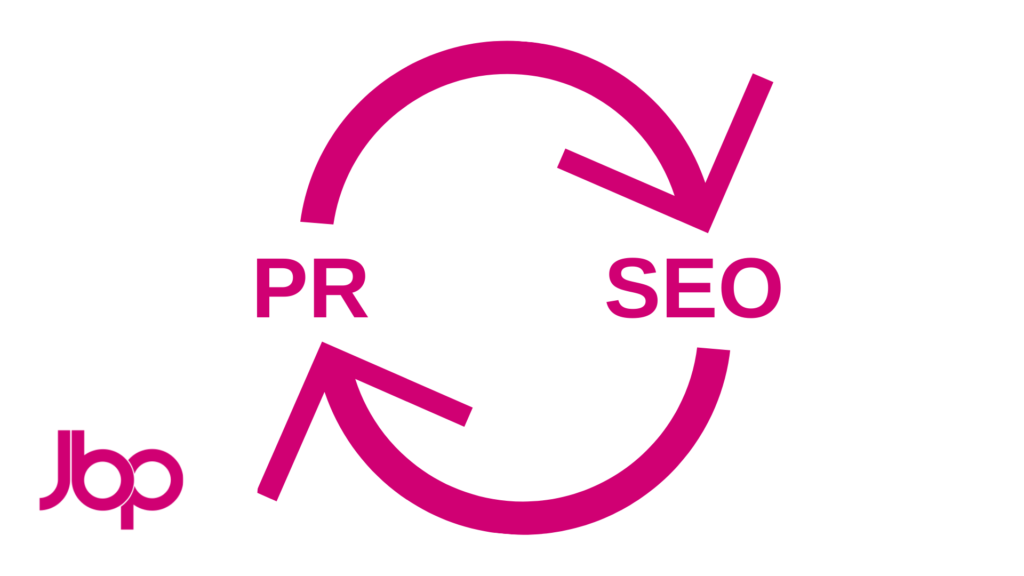Public Relations (PR) and Search Engine Optimization (SEO) are key parts of all effective reputation building and management strategies. With global executives attributing 63% of their company’s market value to reputation, no business can afford to miss a trick here.
Are PR and SEO related?
PR and SEO are both long-term brand strategies that help organisations meet their objectives while providing other short- and medium-term benefits. While PRs deal with what the user sees (content), SEOs ensure that it is as effective as possible from the search engine’s perspective. In other words, PRs sort the ‘front-end’ and SEOs then handle the ‘back-end’. SEOs can also use insights from this to generate new content ideas for PRs to use.

How do PR and SEO complement each other?
PR professionals attract web traffic and generate leads through the production of high-quality content for users. SEOs support these efforts by translating content into highly relevant descriptions and tags for search engines, such as Google and Bing.
5 Ways to Optimise your PR
Total Time:
Respond to user intent
Plan your content based on what users are searching for.
Answer their questions in their preferred formats e.g. step-by-step tutorials vs list posts.
Provide the resources they want.
Pro tip: make sure you include images and/or videos.
Do your Homework
Research and select keywords that you could rank for.
Why? Google first ranks content according to its relevance to users’ search queries, which is largely determined by the use of relevant keywords. Make sure you use them naturally and throughout your content.
Pro tip: prioritise searcher intent when selecting keywords (Yoast’s SEO Course).
Make original, high quality content
This will keep users on your page for as long as possible, which can boost its ranking on Google.
Pro tip: include links to other pages on your website to make it easier for Google to ‘crawl’ it and keep users on it longer. This can boost your site’s ranking.
Fully cover your subjects
Users want whole answers, so write as much as you need to cover your subject fully (Alexa SEO Best Practices).
Breadth and depth matter because users’ needs are complex (SEMrush’s Role of Content Course).
Pro tip: provide users with helpful resources that complement your content.
Offer unique value
Provide insights and actionable takeaways that no one else does.
Pro tip: ask yourself if you would share it.
Bonus tip: edit your meta tags (URLs, title tags and meta descriptions). There are a host of great WordPress plugins that make this really easy to do!


Billy Holmes Account Executive
Billy is certified in Content SEO and PR.


